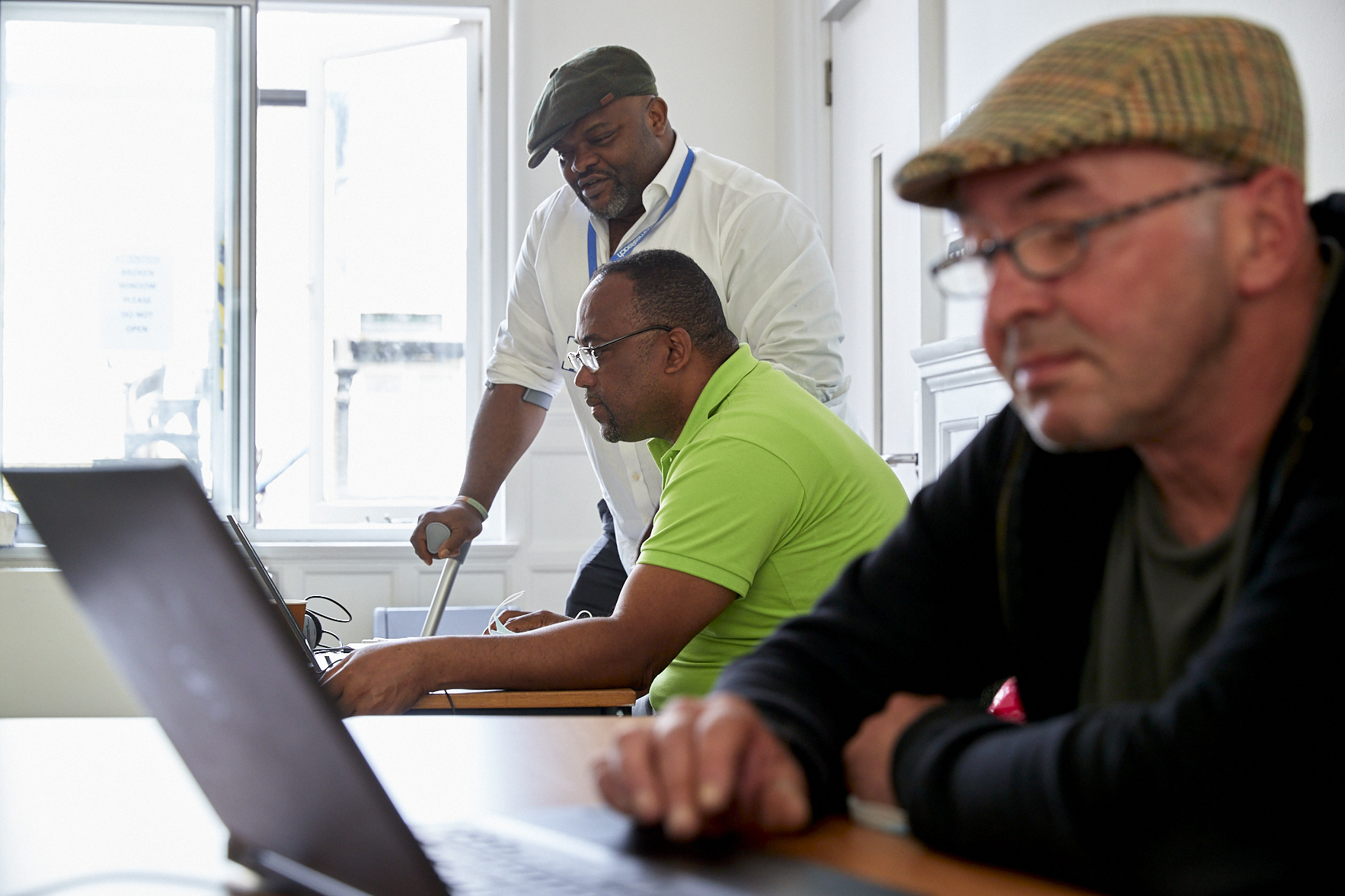The essential role of Employment and Skills in preventing street homelessness
Michael Buckley, lead manager of the Employment and Skills team, discusses the work they do, and why it is important

Can you tell us about how the Employment and Skills team are helping people Thames Reach are already working with?
We are always looking to increase the numbers of people we work with, and offer a range of support such as basic skills training, which includes digital literacy, traditional literacy and English to Speakers of Other Languages (ESOL). We have a job broker in our teams who can set people up with employment; we have strong relationships with many employers, especially in construction, hospitality, retail, and security sectors. We acknowledge that not everyone will be ready to go straight into a new job, and many people will have gaps in their CVs where life experiences have taken place, so we can also help people become job-ready, with CV support and interview preparation.
Once people are at that stage and in employment, we are also committed to helping people get better paid work, particularly meeting the London Living Wage. We often organise employer engagement events, where we invite employers in to meet potential candidates, so we can demystify the interview and recruitment process as much as possible. They are always popular and have been very successful. For those who may not be ready for work yet, we provide volunteering opportunities to help people gain confidence, experience and get into a good routine.
Why is it so important to work collaboratively with other Thames Reach teams?
Internal teams have good relationships with the people they work with, and know them really well; some of the work we do will be a brief intervention so that the individual can take that next step. It’s so important that the relationships of trust are maintained between the individual, their support worker and the Employment and Skills team. If we can understand the challenges and the barriers that are preventing people from moving forward, we can use the resources we have to help them in the most suitable way. We work with the TST (Tenancy Sustainment Team) a great deal, all outreach teams, and sometimes hostels. We also have a strong relationship with the EUSS (European Union Settlement Scheme) team, and a good track record of signposting people to the right service to complete successful immigration status applications. This is a vital part of the process of helping people avoid street homelessness.
Do you offer support to people with a range of needs?
When we have referrals from all different teams at Thames Reach, as well as the wider community, we work with a wide range of people; some may be currently sleeping rough and receiving support through outreach teams, while some people will be in secure housing. To maintain contact, we need to find out if they have access to a mobile phone. We work with an organisation called Community Calling to get people phones so that they can keep in contact with not only us and their support worker, but of course their wider support networks. We then need to know if they are available for work, when they last worked, and what kind of upskilling they might need. Even if people are staying temporarily in hostels, night shelters or hotels, without long-term fixed addresses, we can still help them into work. For some people without fixed addresses, they may have limited entitlement to benefits, so finding work quickly is important.
Our work lies in both preventing street homelessness and helping people recover from it. Getting people into work is not always straightforward and involves a lot of personalised support around improving confidence and self-esteem as well as skills. It is important that we facilitate up-skilling; sustainable work is one of the most important things in supporting people away from homelessness.
